Seven days a week — 10 hours a day, if she’s doing overtime — Huang Liyan spends her time with her fingers up Donald Trump’s nose. Occasionally, she arranges his orange hair. Then she plucks skin tags from his slightly less orange face.
Huang is one of 30 workers manufacturing a best-seller from the bowels of a southern Chinese workshop: latex masks of U.S. President-elect Trump. Her employer, Molezu Co., which operates in the factory hub of Shenzhen, also makes Halloween-ready rubber cadavers and bloodied limbs. But Trump is Molezu’s top product. So far, the company has sold 200,000 Trump masks, mostly to customers in the West, for $9.50 each.
Every day, Molezu employees lug buckets of liquid latex and pour the viscous, white slop into molds of inside-out Donald Trump faces. After the masks take shape, they are peeled out and placed on drying racks. Workers then apply layers of orange spray-paint before polishers like Huang trim imperfections. Sometimes, like when reporters from TIME come nosing about, the factory hands wear thin masks. But mostly they breathe in the latex and paint fumes. Exhaust fans in the wall remain idle; electricity is expensive. Workers are paid more than $400 a month, not bad for a factory job in southern China.
Read More: Donald Trump Details Plan to Rewrite Global Trade Rules
Trump — the man, not the mask — has vowed to slap hefty tariffs on Chinese imports when he assumes the American presidency. He has said he will label China a currency manipulator on his first day in office. Unlike other successful presidential candidates, who dialed down their tough trade talk after the polls, Trump has appointed economist Peter Navarro, author of a book called Death By China, as the head of a new White House National Trade Council. “China is both the biggest trade cheater in the world and that country with which the U.S. runs its largest trade deficit,” went a Trump campaign white paper Navarro co-wrote. “The elaborate web of unfair trade practices includes illegal export subsidies, the theft of intellectual property, the aforementioned currency manipulation, forced technology transfers and a widespread reliance upon both ‘sweat shop’ labor and pollution havens.”
Read More: Why America Would Lose a Trade War With China
At the Molezu factory — a sweatshop and pollution haven by some standards — workers I speak to aren’t worried that a trade war could slow their production line. Mostly, they are intrigued by Trump’s reputation as a successful businessman. “As a rich guy himself, Trump will make the American people rich,” says Fan Zhenzhu, as he wields a paint spray-gun. “I know Trump will focus on the economy and bring jobs back to the U.S. But it won’t affect us. China is a big country, and we have huge consumption power of our own.”
Inside the Chinese Factory That’s Already Sold 500,000 Trump and Clinton Masks
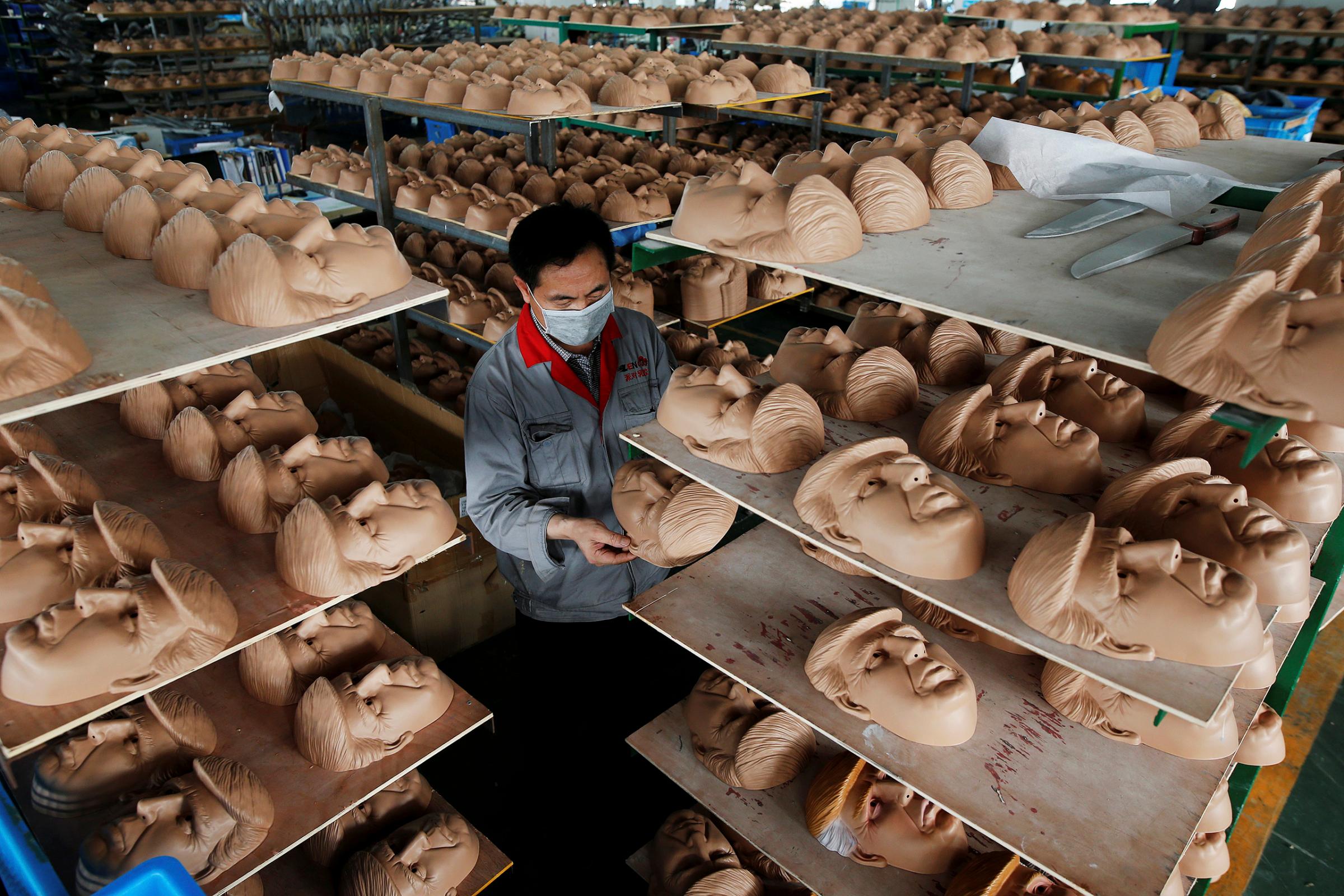
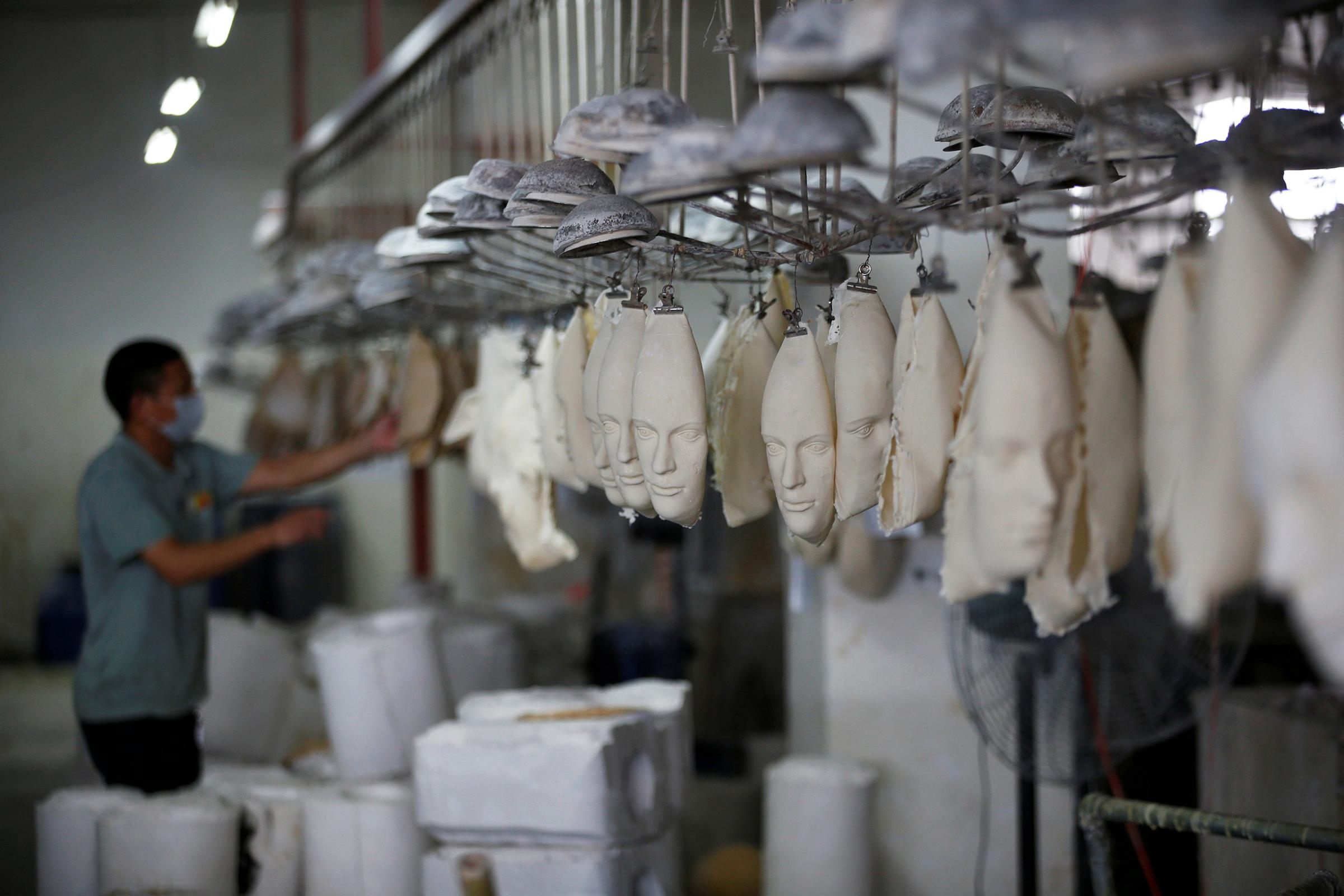
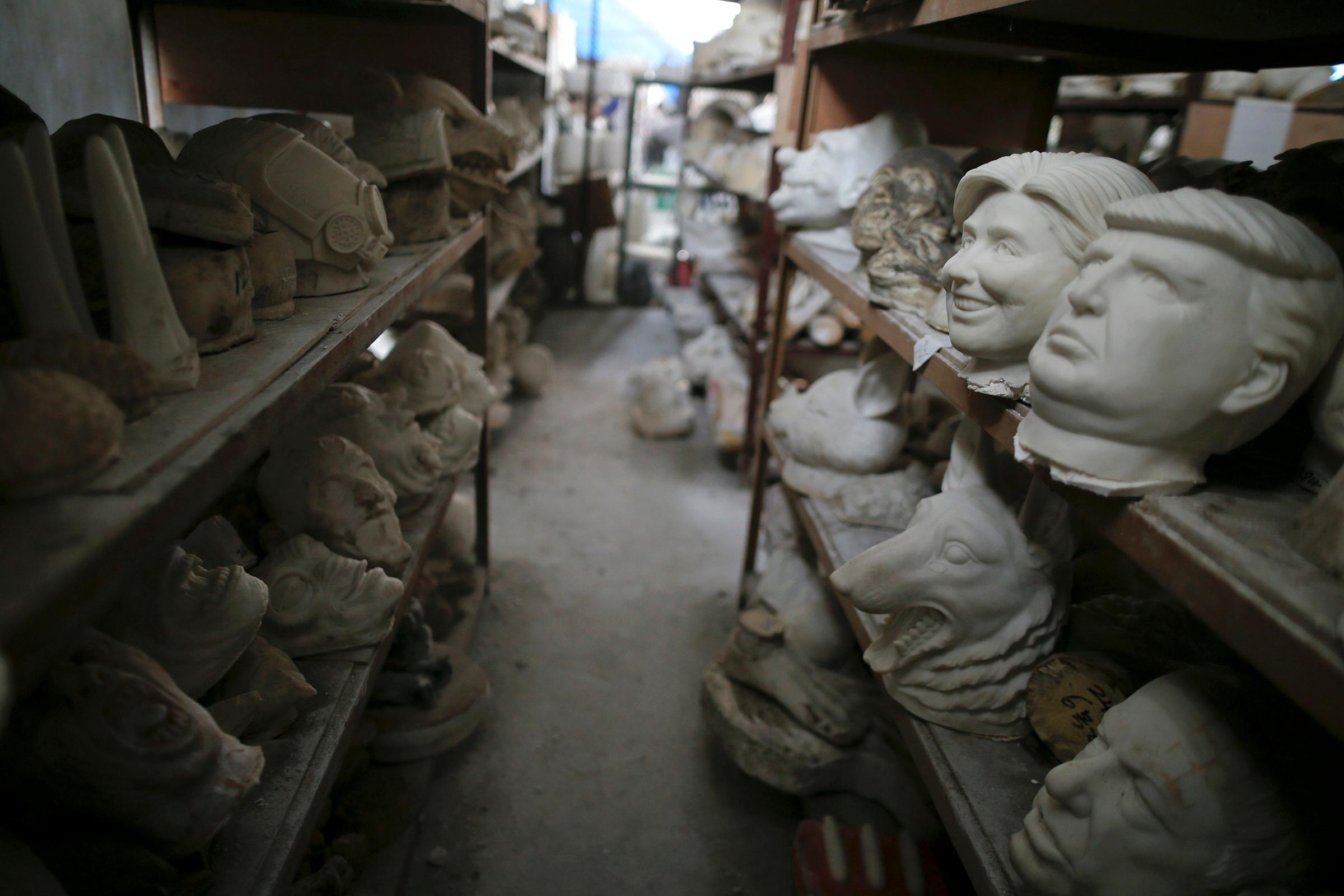
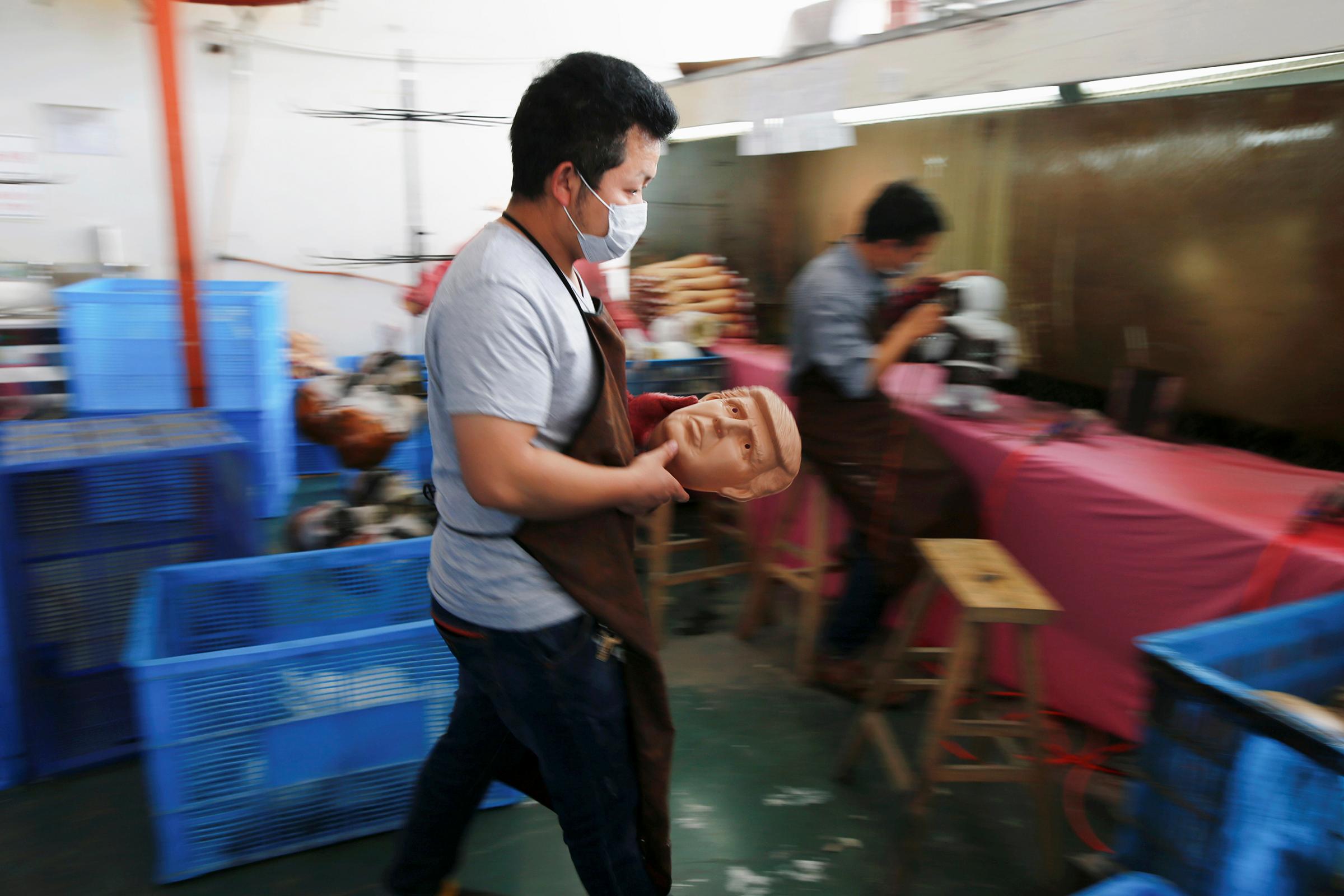
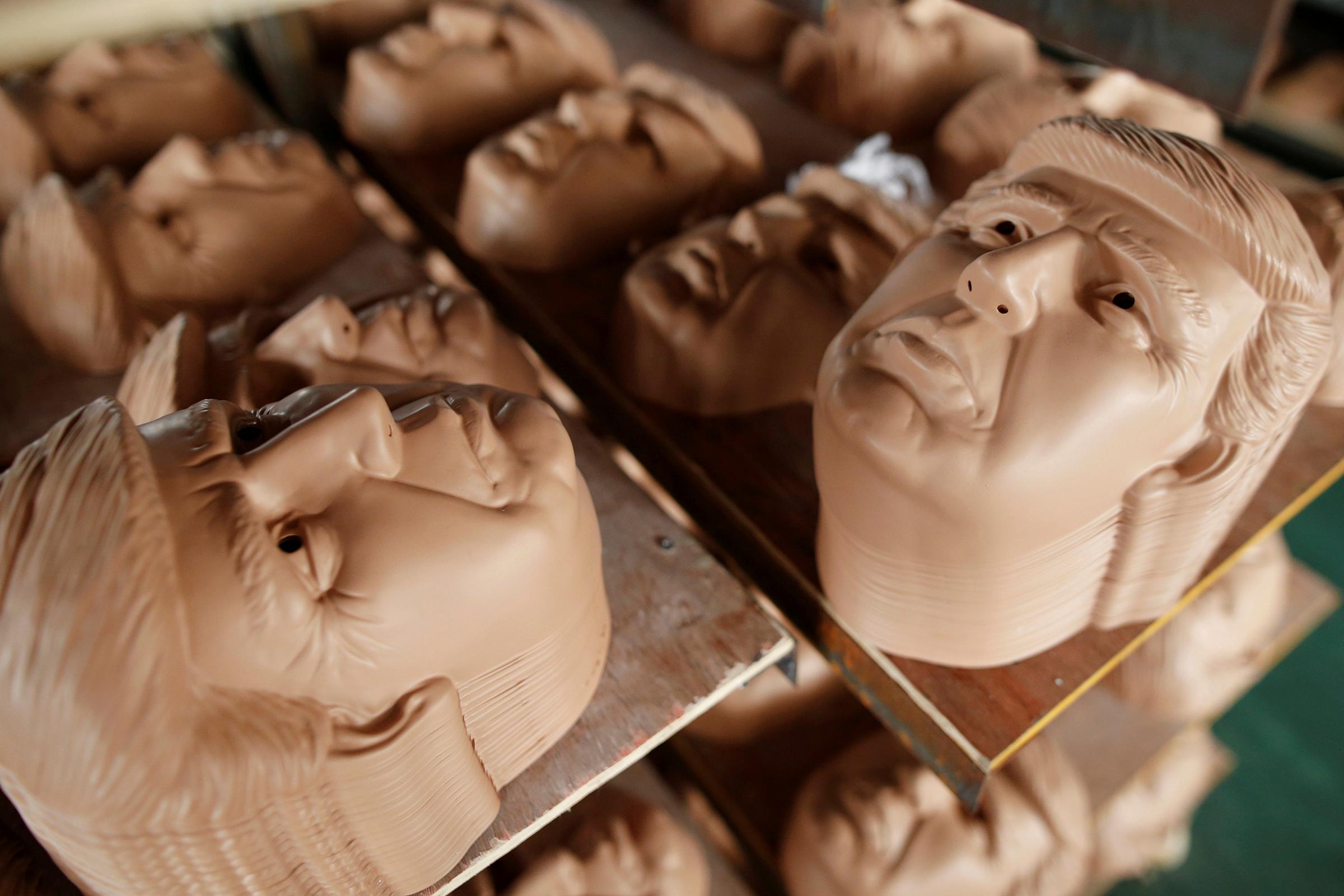
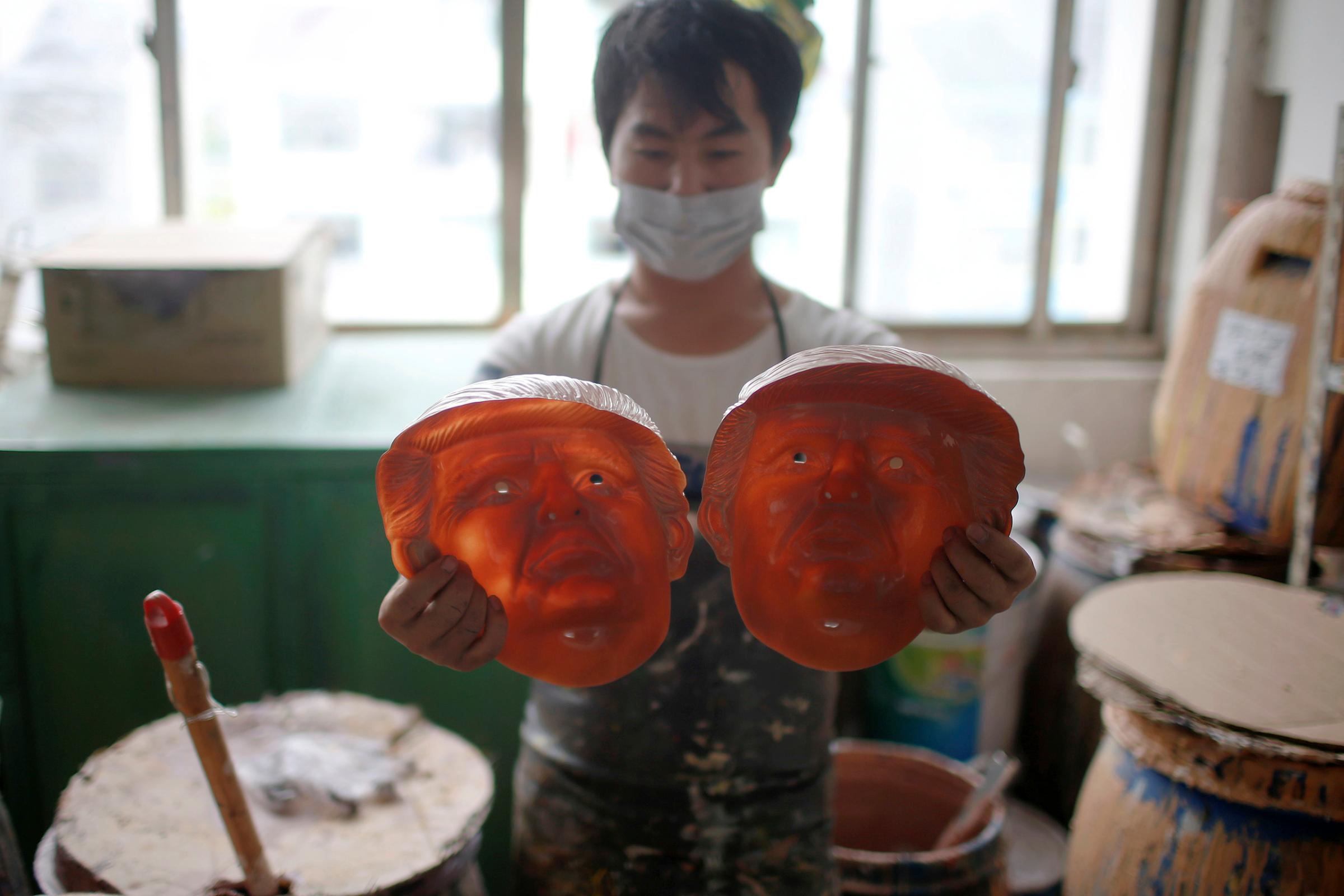
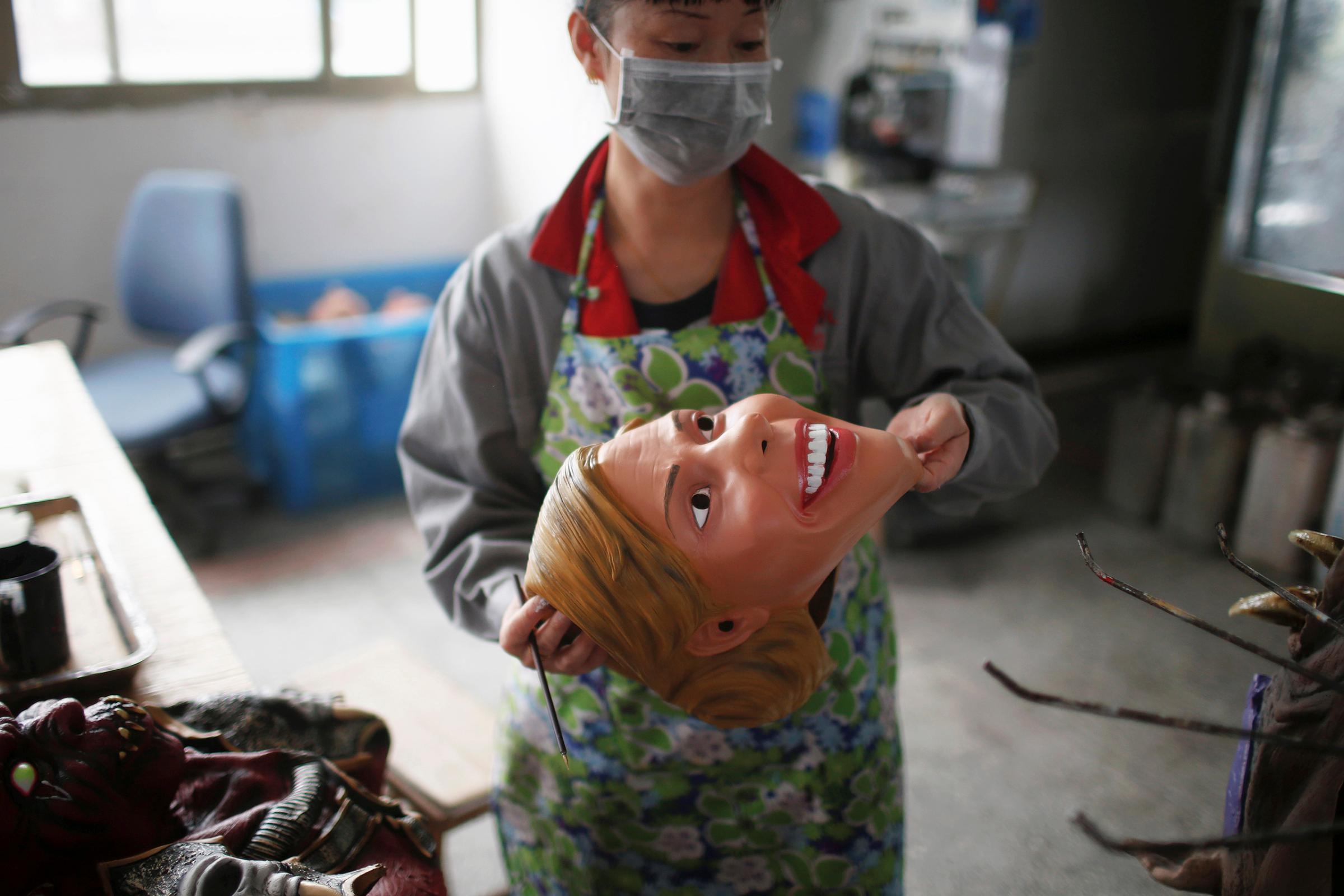
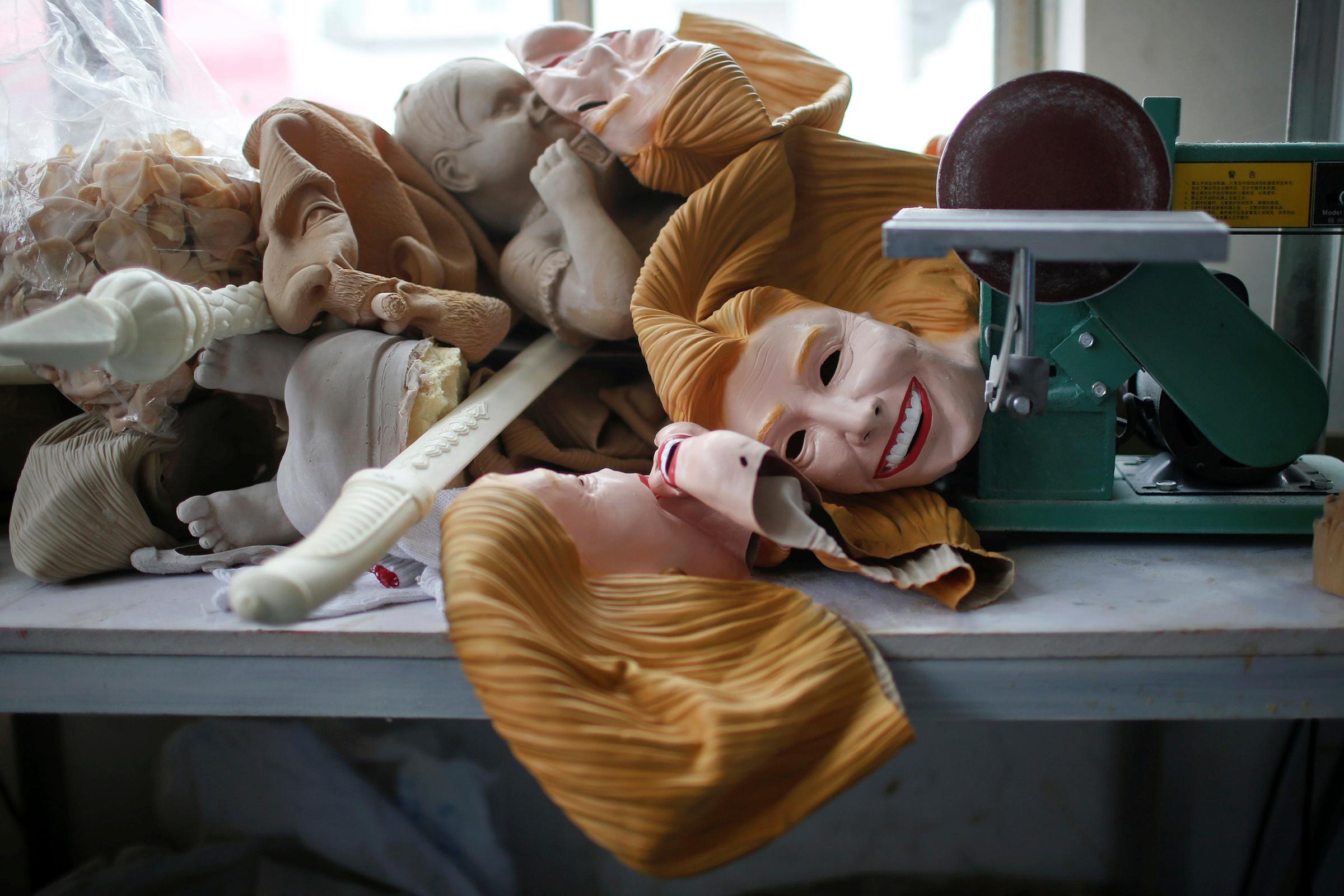
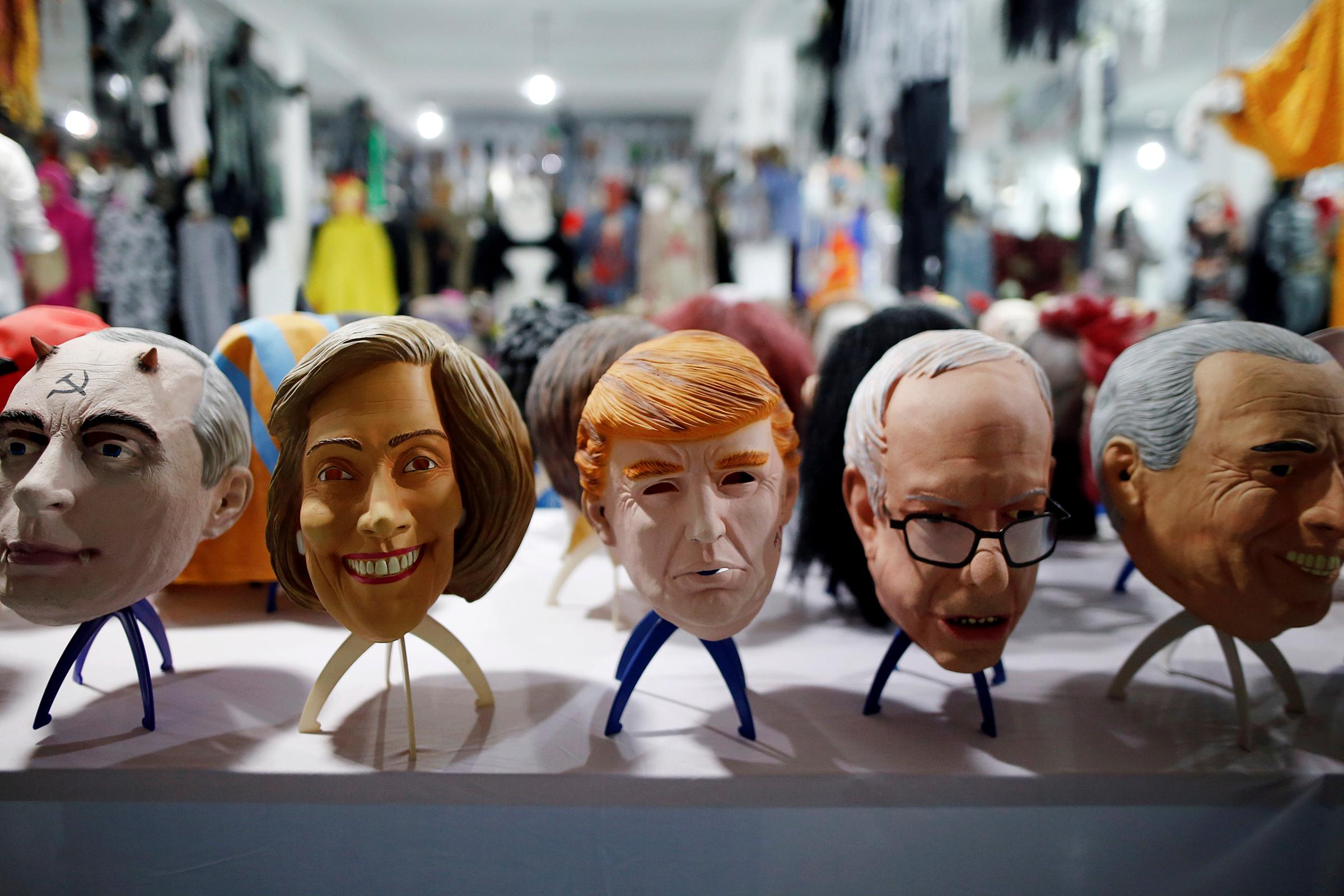
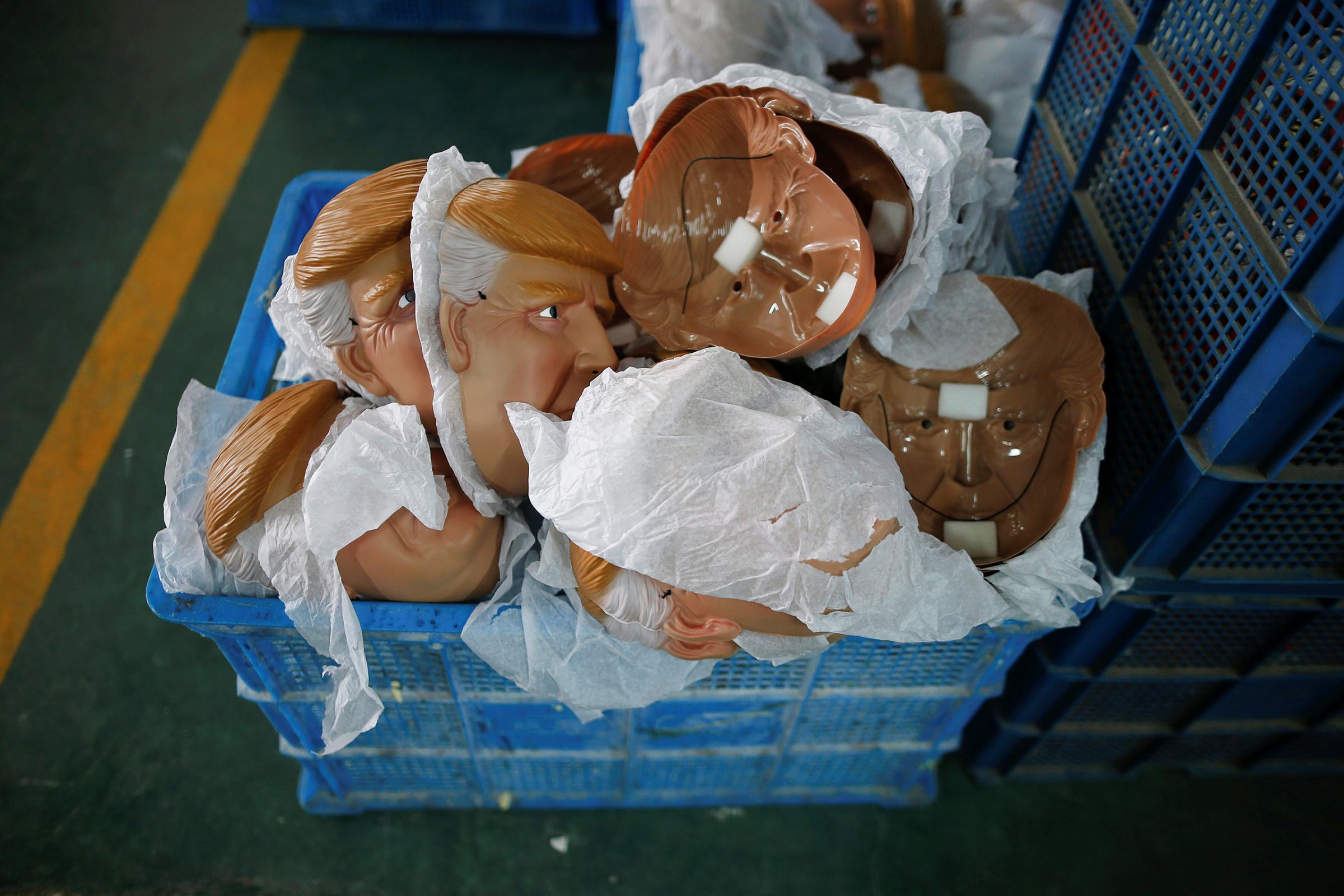
For Huang, an elementary-school graduate who lives in a cramped dorm room with three other factory workers, politics don’t enter her mental calculation. “I don’t know who the president of China is,” she says, snipping off bits of excess latex from Trump’s face. “I don’t watch the news.” Factory work is harder to get in southern China’s Guangdong Province these days, as China’s economy cools. Huang is grateful for her $430-a-month salary, even if she only sees her six-year-old daughter once a year during Chinese New Year.
Read More: How Trump Could Start a Trade War in His First 100 Days
Yet worker discontent is also rising in China, as income inequality yawns and housing grows increasingly unaffordable in the big cities. Labor protests have proliferated. China’s economic weight is shifting from manufacturing to services. As factories decelerate, part of China’s “floating population” — roughly 275 million internal migrants who have traded rural lives for urban hustle — has had no choice but to return home to fallow land. Some manufacturing jobs have even fled to lower-cost parts of Asia. It’s precisely the kind of labor exodus that troubles many Trump supporters in America.
Still, the enterprise and ambition of Chinese workers, who have powered what is now the world’s second-largest economy, have not changed. Xu Sumei is Molezu’s production manager in charge of churning out 3,000 masks a day. She stands amid piles of Donald Trump masks and exchanges factory gossip with other workers. During her five years at the company, Xu has watched salaries for entry-level workers double. Trump’s rhetoric that Chinese laborers are stealing jobs from the American rust belt mystifies her. “Aren’t U.S. workers willing to work for 3,000 to 4,000 yuan a month?” she asks, figures that convert to between $430 and $580. “Here, that’s a good salary.” In China, perhaps. But what American would take those wages for a chance to polish Donald Trump’s face seven days a week, 10 hours a day?
— With reporting by Zhang Chi / Shenzhen
More Must-Reads from TIME
- Caitlin Clark Is TIME's 2024 Athlete of the Year
- Where Trump 2.0 Will Differ From 1.0
- Is Intermittent Fasting Good or Bad for You?
- The 100 Must-Read Books of 2024
- Column: If Optimism Feels Ridiculous Now, Try Hope
- The Future of Climate Action Is Trade Policy
- FX’s Say Nothing Is the Must-Watch Political Thriller of 2024
- Merle Bombardieri Is Helping People Make the Baby Decision
Contact us at letters@time.com